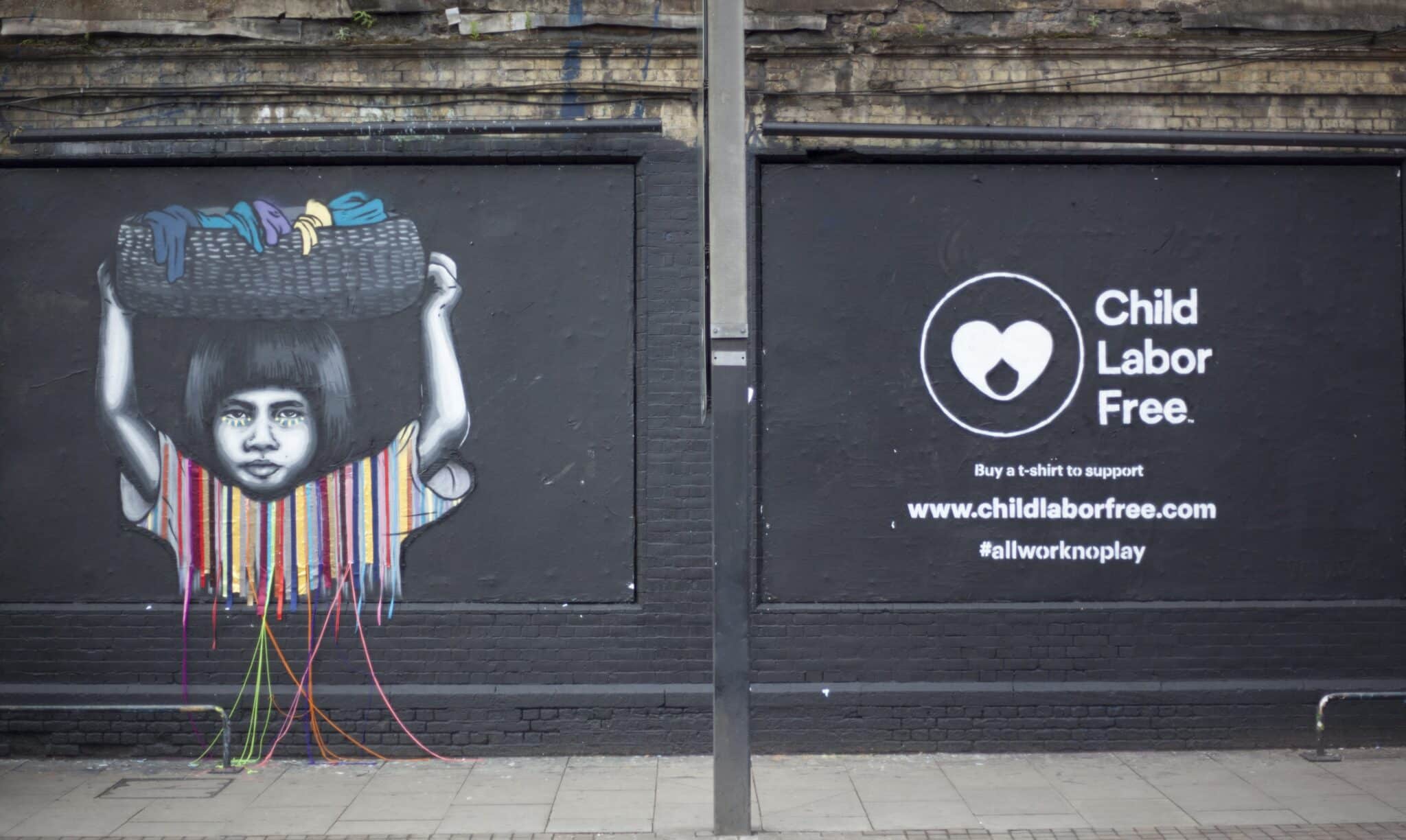(OSV News) — In a legislative development that has drawn concern from both Catholic and labor leaders, Gov. Sarah Huckabee Sanders, R-Ark., signed into law March 8 the Youth Hiring Act of 2023, which eliminates state age verification for children younger than 16 seeking a job.
Arkansas law previously stipulated the Arkansas Department of Labor issue an official employment certificate for minors under 16 seeking to work, which included parental or guardian permission, a job description and schedule — measures that were considered a deterrent to potential child labor law violators.
Sanders’ office noted that all existing Arkansas child labor laws still apply, and businesses are expected to observe them.
However, prior to the signing of the Youth Hiring Act of 2023, Arkansas was one of eight states where the U.S. Department of Labor discovered children as young as 13 working at two meat-packing plants: George’s Inc. in Batesville, Arkansas, and Tyson in Green Forest, Arkansas.
“The Diocese of Little Rock is concerned about the exploitation of children and youth under the age of 16 to perform dangerous jobs, often in hazardous work conditions,” Dennis Lee, the diocesan chancellor for administrative affairs, told OSV News. The diocese encompasses the entire state of Arkansas and is led by Bishop Anthony B. Taylor.
“Arkansas had a reasonable, non-burdensome law on its books that required employers to first procure and keep on file a work certificate before permitting a minor under the age of 16 to work,” Lee observed. “The work certificate provided some safeguards for these minors by requiring proof of age; a description of the work and work schedule; and written consent of the parent or guardian.”
“Now that these safeguards will no longer be in place, we must trust that Arkansas’ other child labor laws and federal employment laws and their enforcement will protect our state’s children and youth from exploitation and harm by employers who would otherwise disregard their well-being and safety,” Lee concluded.
Benjamin Smith, senior child labor specialist at the International Labor Organization, agreed. “Age verification and keeping records of children who are allowed to work is critical to prevent underage children from child labor, and to prevent children above the minimum age from being exposed to hazardous working conditions.”
Smith added, “Removing such protections only heightens the risk that children will become involved in child labor.”
The ILO is a Geneva, Switzerland-based specialized agency of the United Nations founded in 1919 that sets international labor standards, and advises the U.S. government concerning policy. The Vatican delegates a permanent observer to the U.N. and its agencies, and Pope Francis has offered messages to ILO gatherings.
Employers frequently mention an ongoing worker shortage among their challenges, which has motivated some state legislators to introduce bills that would weaken child labor age regulations and safety protections.
Lawmakers in Iowa, Minnesota, New Hampshire and Wisconsin have put forward legislation proposing modifications to child labor laws including lowered working ages and longer hours, as well as the elimination of work permits, limited employer liability and granting exceptions for previously prohibited industries.
The Ohio Senate passed a bill March 8 that would allow 14- and 15-year-olds to work until 9 p.m. during the school year with their legal guardian’s permission; current state law requires workers to be at least 16.
OSV News reached out to the U.S. Conference of Catholic Bishops for comment but had not yet received a response.
Mary Leary, professor and senior associate dean for academic affairs at The Catholic University of America’s Columbus School of Law in Washington, told OSV News that globally companies resort to child labor in order to cut costs rather than make changes that would make these jobs “more attractive to the workforce.”
But Leary pointed out that one recent change to the U.S. “is this influx of extra-vulnerable migrant children.”
“These are children whose vulnerability is compounded. They are also driven by such severe poverty that they feel a desperate need to send money back home to keep their own families alive,” Leary said.
According to a 2020 American Immigration Council report, 55,000 immigrants living in Arkansas were “undocumented,” 44% of the state’s total immigrant population.
Under Arkansas’ new child labor regulations, migrant parents who are not authorized to be in the U.S. will no longer face having their consent to their children working on file with the state.
The U.S. Labor Department reports it has 600 ongoing child labor investigations, while witnessing a 69% increase in children illegally employed since 2018. In the last fiscal year, the department said Feb. 27, it found 835 companies it investigated had employed more than 3,800 children in violation of labor laws. The Labor Department called for Congress to take action, noting Feb. 27 “the challenge of child labor exploitation — particularly of migrant children — increases nationwide.”
On March 3, U.S. Sen. Tammy Baldwin, D-Wis., introduced the Child Labor Prevention Act, which intends to increase maximum fines and establish new criminal penalties.
“In no world is it acceptable for employers to be making money off child labor and our laws must reflect that by cracking down on the exploitation of children,” Sen. Baldwin said in a statement.
In one of the largest child labor cases in its history, the Labor Department’s Wage and Hour Division discovered 102 children ages 13 to 17 employed by Kieler, Wisconsin-based Packers Sanitation Services Inc., at its client facilities in the states of Arkansas, Colorado, Indiana, Kansas, Minnesota, Nebraska, Tennessee and Texas.
A Reuters investigation released in December 2022 discovered migrant children as young as 12 working in Alabama factories that produce parts for Hyundai Motor Co. and Kia Corporation.
In an attempt to bypass existing statutes, some employers have also begun classifying children as independent contractors, exploiting a loophole in the Fair Labor Standards Act that bans employment of minors, yet allows companies to use them as independent contractors.
Pope Francis has repeatedly condemned such practices, commenting last May to the fifth Global Conference on the Elimination of Child Labor that “the way we relate to children, the extent to which we respect their innate human dignity and fundamental rights, expresses what kind of adults we are and want to be, and what kind of society we want to build.”
By Kimberley Heatherington | OSV News








3 thoughts on “Catholic, labor leaders raise concerns as Arkansas revises child labor law”
Does anyone buy clothing made in China? Thailand? Other parts of Asia and India? Odds are the clothing was made by children.
How about electric cars: components of critical parts are often mined by children in China and other parts of the world. The US bans mining of these key ingredients. Should we ban electric cars? Maybe we should pass a law banning consumer items mined by child labor? Slave labor?
Why don’t we focus on banning the most disgusting practices.
Like the exploitation of children?
I worked in my Dads Grocery store from an early age of seven and was taught to love and appreciate what I did. I was busy and felt pride in the fact that I could run the business at age Thirteen and give my Dad time for travel and vacations.
Today that would be frowned upon as Child Labor but I found it to be an education that was unavailable in any school I attended. Boys my age had paper routes and other occupations to occupy their free time.
Today with juvenile delinquency and drugs affecting our youth We should be encouraging Kids engaging in some form of work to improve their outlook on life and the economic system we live in. Sure beats sitting around and getting into trouble.